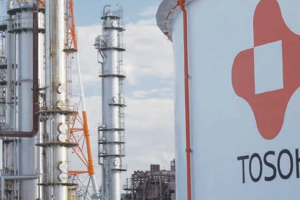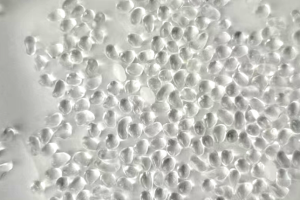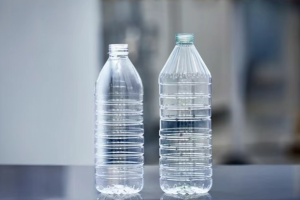March 28, 2025 – ALBA Tridi, a facility operated by ALBA Group Asia in Indonesia, has recently secured a “No Objection Letter” (NOL) from the U.S. FDA for the production of food-grade rPET. This significant certification not only heralds a new chapter for the Southeast Asian recycled plastics industry but also underscores ALBA Group’s ambitious global strategic layout: from the Chinese market to Indonesian territories, leveraging European advanced technology for localized implementation. The environmental giant is forging ahead to establish a “zero-waste” network across Asia.

ALBA Group Asia’s strategic deployment is particularly ingenious. In China, its Jiangxi ALBA Longyi plant boasts an annual capacity of 50,000 tons of AAA-grade rPET flakes and 20,000 tons of food-grade chips, solidifying its position as a leader in domestic recycled PET production. Meanwhile, in Hong Kong, the Plastic Restart factory, as the largest plastic recycling and regeneration facility in the territory, aligns its technical standards with international benchmarks. Now, with the FDA certification for the ALBA Tridi plant in Indonesia, ALBA Group expands its footprint into the core Southeast Asian market. Indonesia, being the second-largest contributor to marine plastic pollution globally, is actively promoting the use of recycled plastics, aiming for 100% recyclable plastic packaging by 2029. ALBA’s strategic move aligns with this policy trend and fills the gap in food-grade recycled plastic capacity in Southeast Asia.
According to Color Masterbatch Industry Network insights, the ALBA Tridi plant, located in Kendal, Central Java, Indonesia, is the first local factory to produce food-grade recycled plastics. Its FDA certification is no coincidence but a testament to ALBA’s dual advantages of “technology + equipment.” The plant adopts mature European recycling processes, optimized for the high humidity and pollution characteristics of waste plastics in Southeast Asia. Furthermore, it is equipped with a cluster of world-class machinery, including a Polygreen deep-cleaning line, TOMRA sorting machines, and Starlinger extrusion systems, ensuring the purity of rPET meets food-grade standards. The plant has an annual capacity of 24,000 tons of rPET flakes and 12,000 tons of food-grade rPET chips.
The technical threshold for food-grade rPET is extremely high, requiring chemical contamination-free and physical properties comparable to virgin plastics. Currently, only a handful of companies worldwide can pass the stringent certifications from the FDA, EFSA, and others. ALBA’s breakthrough will directly tap into two major markets: international brand supply chains and local substitution upgrades in Indonesia. International brands like Coca-Cola and Nestlé have committed to using 25%-50% recycled plastic by 2025, and ALBA Tridi’s capacity will become a core supply source in Southeast Asia. Additionally, Indonesia consumes over 2 million tons of PET annually, with food-grade rPET previously fully reliant on imports. Local production will significantly reduce costs.
The global recycled plastics industry is driven by a trifecta of policy pressure, technological breakthroughs, and the ESG commercial wave. Against this backdrop, ALBA’s layout transcends the competition at the level of individual factories, adopting a “technology export + regional capacity center” model to occupy a pivotal position in Asia’s circular economy infrastructure. From Jiangxi, China, to Java, Indonesia, ALBA’s factories are not just production workshops but beacons of plastic rebirth. With the FDA certification in hand, this “zero-waste revolution” propelled by technology, policy, and commerce is perhaps just beginning. ALBA’s vision is: “Ultimately, there is no such thing as waste, only resources in the wrong place.” This is the future that the entire industry must strive to write together.














